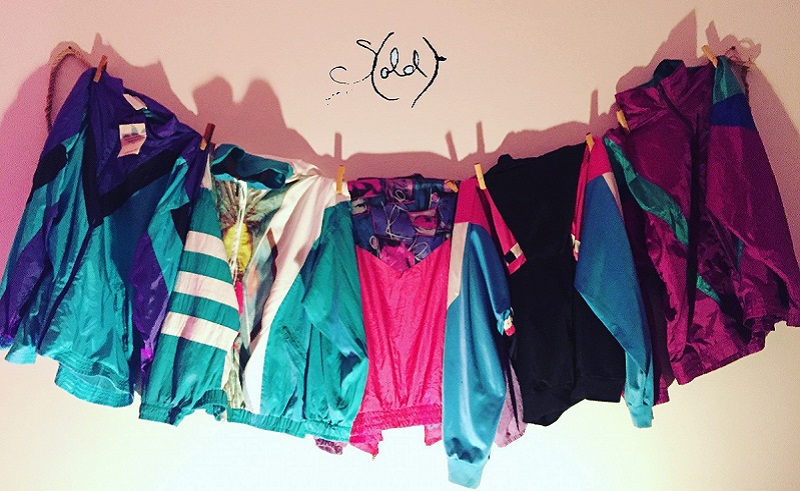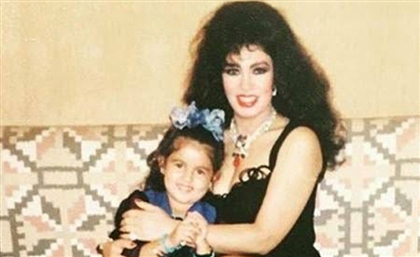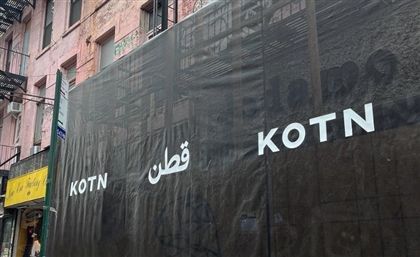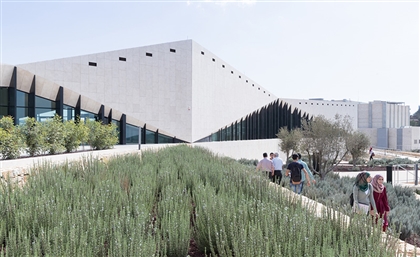This New Thrift Store is the Reason Everyone in Cairo Looks Like Macklemore Right Now
Launched recently by Yahya Karali, thrift store S_old is open for business with some seriously vintage pieces on display.

Before department stores started opening everywhere, making everyone look the same, people’s clothes said a great deal about who they were. Way back in the day, people looked unique, you could wear a shirt and the chances of you meeting someone wearing the same thing as you were zero.
Nowadays, you walk into a store and pick out something that you think is unique and reflects your undecidedly unique personality, and the minute you walk out, you see some other shnook wearing that same shirt in the mall, and, suddenly, your world comes crashing down.
Yahya Karali is an Egyptian who has opened a vintage thrift store named S_old that aims to make you look a little less like a cog in the globalisation machine, and more like someone with a unique taste. Karali started the S_old business last year, alongside his roommate, with several things in mind. In the US and Europe, the vintage/thrift store movement has become more and more of an an outlet for alternative fashion and Karali’s aim is to implement something of the sort in Egypt.

Karali has an MBA in Strategy & Consulting from the London Business School and a MSc in Management from Reims Management School. He did his thesis on consumer behaviour in the West compared to consumer behaviour in Egypt. Included in his thesis was a look at thrift store shopping.
He realised that there were heaps and heaps of clothes that were recycled each year as people buy new clothes. Vintage stores are environmentally friendly because they recycle old clothes and that was one of the things that attracted Karali to the idea, they don’t use loads of resources to manufacture clothes like other big clothing brands. He learned that there were containers filled with old clothes coming into Egypt’s port cities, such as Port Said or Safaga, and being sold there. The sheer amount of old clothes that was coming in meant that the chances of there being good and fashionable clothes among them were very high. You know, statistically.
Karali has contacts in several port cities who call him when a new shipment of clothes comes in, he then heads there, sorts through tonnes of clothes and picks out items that he feels are fashionable, but also items that are entirely intact. He explains that if an item is a good find but needs minor repairs, he will repair it before selling it. “The items are so beautiful, sometimes I can’t believe what I’ve found,” says Karali.
By bringing the thrift store concept to Egypt, Karali aims to make people dress a little more uniquely because of his obvious distaste for the corporate globalised aesthetic that aims to make everyone look like an army of poor dressers who lack individuality.

“You can go to a store and buy a t-shirt, but the odds are you’ll probably find a hundred other people wearing it. With me, you buy an item and it’s one of a kind, whether I like it or not. They don’t make these clothes anymore, so you’ll be the owner of a unique item of clothing that only you will be wearing,” he says.
We know you’re all gorgeous, but if you want to be a little more stylish and a little less corporate, S_old is a good way to find your look and also help a local business with such an admirable mission. Karali explains that his job is much more personal than buying clothes from a store, customers go to his house, he makes them tea or coffee, they chat, and take a look at the collection. If they find something they like, they leave with an item of clothing, but if they don't then they will have just met someone new and had a pleasant conversation.
“This project was not brought to life by my work alone and I feel I need to thank Savannah Gertis, Asseel Karali, Bryony May, and so many other people for their work, without whom this would not be what it is today", he concludes.
- Previous Article Dr.Sisilove or How (Not) To Diffuse A Bomb
- Next Article 7 Haunting Photos of an Abandoned Egyptian Synagogue
Trending This Week
-
Apr 23, 2024
-
Apr 18, 2024
























